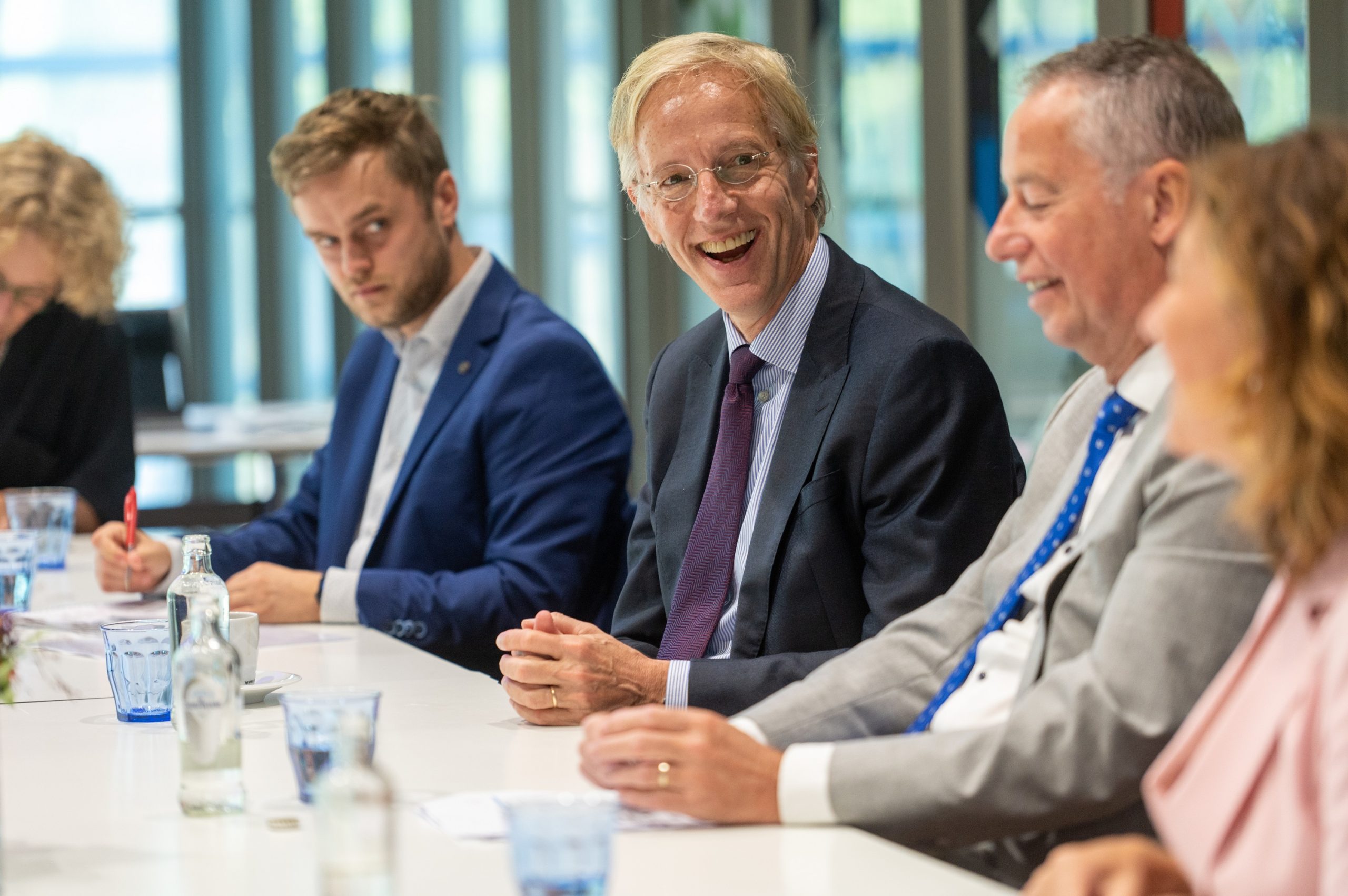It is important that the higher education press can operate independently. These were the words of outgoing Minister Dijkgraaf on Tuesday at a meeting of the Parliamentary Committee on Education, Culture and Science in response to questions by NSC Member of Parliament Hertzberger.
Robbert Dijkgraaf visited TU Delft to talk about open science in September 2023. (Photo: TU Delft)
Rosanne Hertzberger did not mention Delta and TU Delft by name, but it was clear that she was referring to them in connection with the events in April. On two occasions reporters from Delta were barred from attending public consultations between the Works Council, the Student Council and later the trade unions with the Executive Board. No reasons were given, just that Delta was not allowed to attend. The Executive Board even gave the trade unions an ultimatum: if Delta attended, the meeting would be cancelled.
In April, TU Delft’s Legal Services also threatened the Editor in Chief with liability should she not remove a critical article about the lack of social safety at the Innovation & Impact Centre (I&IC). Under protest, she did so.
‘Crucial countervailing force’
Hertzberger said “that the increasingly far reaching intimidation of journalists of independent university media is worrying. There is a risk that soon all items about a university will only cover good news and will be cheerful glossy magazines that only tell nice stories.” She paraphrased George Orwell who wrote that ‘News is what somebody does not want you to print. All the rest is advertising’.
‘I direct my comments explicitly to the higher education administrators’
The NSC Member of Parliament called the higher education media “the countervailing force”, “that other thorn in the side” (i.e. apart from the representation bodies), and “crucial countervailing force for democracy in our academic institutions, that also keeps an eye on the quality of the education”. This last subject was on the agenda of the meeting of the Parliamentary Committee on Education, Culture and Science. It addressed the proposed bill entitled Afschaffen grondslag kwaliteitsbekostiging hoger onderwijs (abolish quality funding for higher education).
Hertzberger asked the Minister “how he plans to safeguard the freedom of the press of these university news outlets”. Immediately thereafter, GroenLinks-PvdA Member of Parliament Luc Stultiens, who had previously submitted written Parliamentary Questions about the removal of the Delta article about I&IC, spoke. He said that he was keen “to be part of this serious issue”.
Academic debate
Outgoing Minister Robbert Dijkgraaf said that he also found Hertzberger’s concerns “worrying”, “given the number of incidents that show that some institutions here are battling with it”. He called independent journalism and press freedom “a great good, including in academic debates” and went on to say that “The academic press is a very good way to keep people on their toes. So it is important that the editorial offices of university and university of applied sciences operate independently.”
Dijkgraaf believes that it is “the responsibility of institutions to safeguard journalistic independence and to ensure that their output does indeed not become PR items … I direct my comments explicitly to bodies such as the administrators of universities of applied sciences and universities … I did this again recently. What I then hear is that this is an area in which people want to be involved and that they want to keep the discussion going.”
Dijkgraaf said that he expects institutions to safeguard the independence of the media in higher education. “This can be done by including journalistic independence in the editorial statutes.” The Minister said that “an independent media is a wonderful aspect of the culture of our universities and universities of applied sciences” and is also “an excellent breeding ground for future journalists. I totally recognise its importance.”
Dijkgraaf said that he would respond ‘as quickly as possible’ to the written questions of Member of Parliament Stultiens about what happened to Delta. The three week period in which he was to have responded was exceeded a while ago.
- Also read: Where are openness and accountability?
- Watch the debate of the Education, Culture and Science Committee of 28 May on Debate Direct (in Dutch).



Comments are closed.